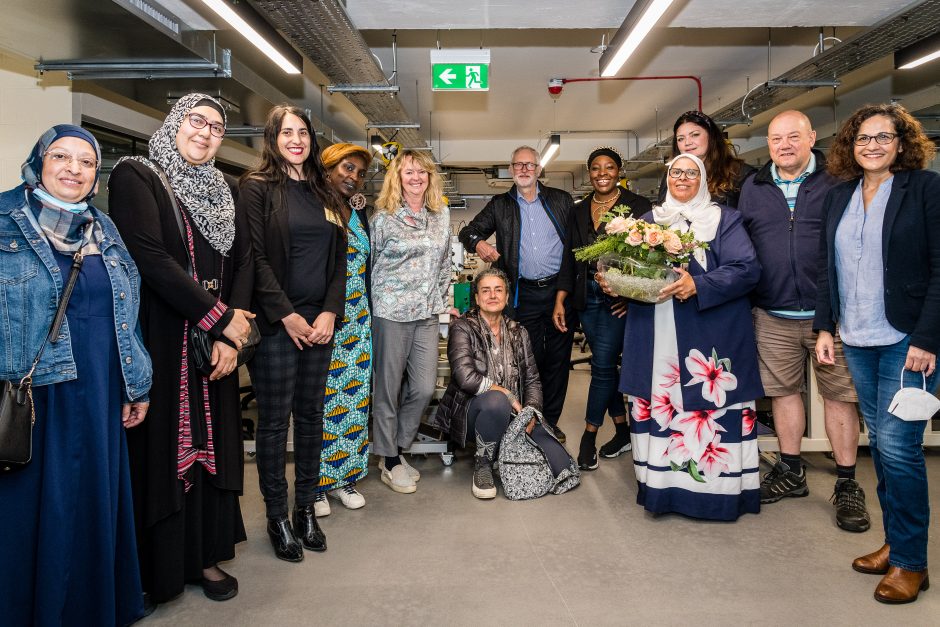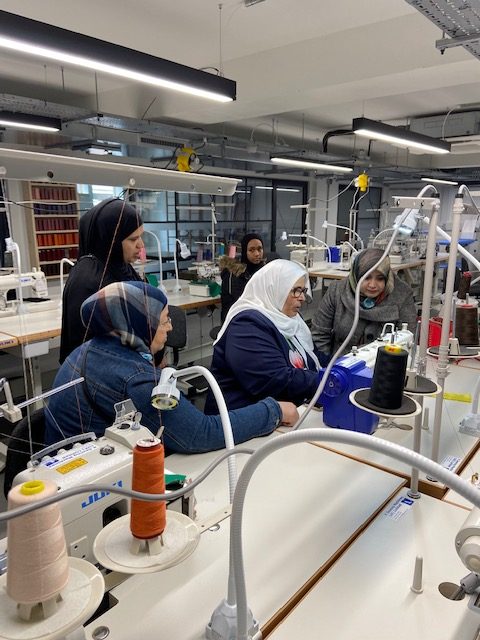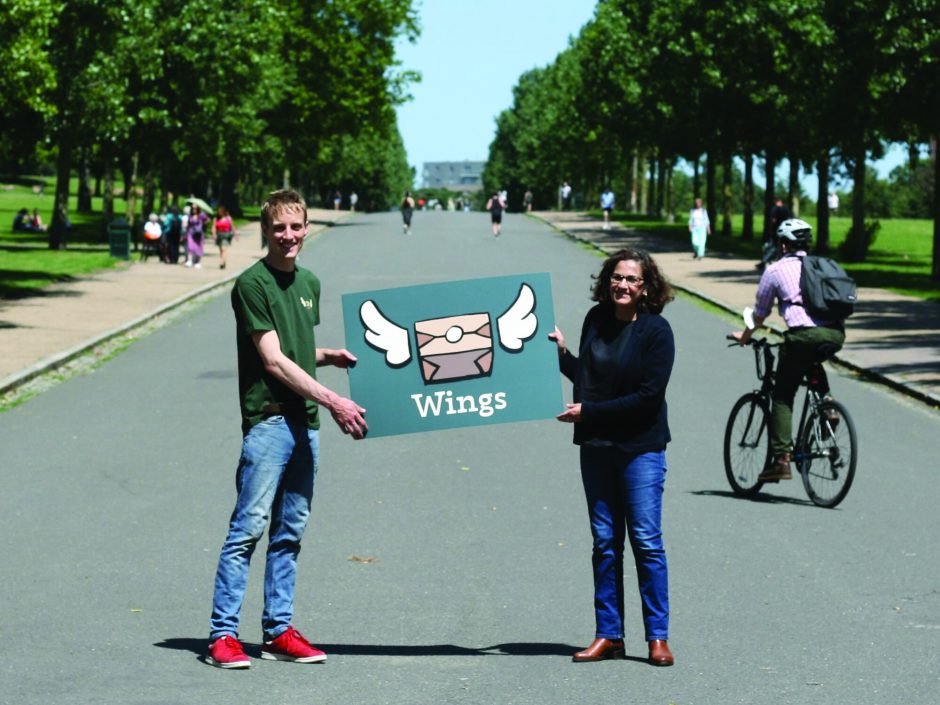A radical wave of co-operative initiatives is aiming to transform life for local people in Islington.
The ambitious plans are inspired by innovative ideas on community wealth building which made Preston and its council a beacon of hope, despite over 10 years of economic austerity for local government. What became known as the ‘Preston Model’ offered new opportunities for businesses to play an active role in shaping their local economy, working with the local authority to supply goods and services so money stayed in the local economy for those who needed it most.
The recent launch of Cooperate Islington offers more opportunities. Here, a consortium of co-operatives and community organisers is working in partnership with Islington Council to build a local authority-funded co-operative development agency (CDA) – the first of its kind for 40 years – offering funding, advice, workspace and other resources, working with some of the biggest institutions in the borough and helping them adapt supply chains to buy goods and services locally from ethical providers.

Stir to Action, a long-established co-operative supporting economic change and strategic development, is closely involved in the partnership. Jonny Gordon-Farleigh, Stir To Action co-founder, says: “Many people have been looking at how the Preston Model might apply in a different context, such as a metropolitan borough where there are immense levels of private capital coexisting with areas of deprivation. This is the culmination of a lot of work supporting the co-operative, inclusive economy and we’re in a position to continue to build on it. This is a big moment – there hasn’t been a new CDA funded by a council for a few decades.”
In 2010, Islington Council’s Fairness Commission took serious steps to tackle stark inequalities. Statistics showed Islington might be home to some of the wealthiest people in the country, but it was also an area where over half its children were growing up in poverty.
Islington Council became one of the first boroughs to pay the London Living Wage. It introduced free school meals for all nursery and primary school children, and created a new inhouse employment services team – iWork – that has supported 5,500 people back into work. The social impact was impressive but fast forward to 2022 and the figures show there is still a massive disconnect between the big flows of capital and multi-national businesses and small businesses facing the impact of rapidly rising prices for office space.
Islington’s new Community Wealth Building directorate has been tasked with ensuring things become more inclusive and that money stays in the local economy. A driving force behind it is Cllr Asima Shaikh, executive member for inclusive economy and jobs. With a background in international economic development and a previous role in the Economic Unit of the Greater London Authority, she is passionate about improving lives, particularly for the borough’s working class and BAME communities.
“By traditional measures Islington is wealthy – but this supposedly successful and wealthy economy doesn’t work for many local people. We needed to look at how we can have an economy which delivers the best for local people, spending resources on the poorest. Everything we did had that lens to it, targeting communities where help is needed.”
The council is using its £1.2 m funding from the mayor’s Good Growth Fund (which it matched with another £1m) to intervene in a number of ways, including increasing the amount of social values expected from procurement – doubled from 10 to 20%. It is also working with anchor institutions – large social buyers and employers – like the Whittington Hospital and City University to maximise employment opportunities.

Among the five social value indicators that feature in the bidding process is the extent to which providers plan to support women and unemployed residents to get back into work, and how many disabled, young ex-offenders, and black or minority ethnic staff they expect to employ.
To date, the programme has generated over £1m of additional value. Affordable Workspaces, a council-led market intervention, already offers long-term leases of 10-20 years on peppercorn rents to create office space for co-operatives, social enterprises and other entrepreneurs. It has now delivered more than 2,520sqm of space and secured a further 2,824sqm from new developments to deliver in the next five years.
In 2019, the first tender was awarded to Outlandish, a local tech co-operative, which is now managing Space4 as a co-working space for pro-social tech businesses. The anchor tenant is Founders & Coders, a tech non-profit that offers training programmes in web development. The space is operated on a ‘pay what you can’ model, with 50% benefiting from a partial or full discount. Outlandish is also at the forefront of the development of the new CDA.
One of the initiatives benefiting from the scheme is Wings, an ethical courier co-operative, launched in July 2021, with many riders who were part of an initiative to deliver emergency food parcels during the first Covid-19 lockdown. It’s currently the only food courier business that guarantees the London Living Wage, offering sick pay and benefits, unlike most other competitors in the gig economy.

Similarly, a disused retail space in Fonthill Road, Finsbury Park, is now home to the FC Designer Collective, a partnership between Islington Council, local communities and garment industry co-operative Fashion-Enter, providing local designers with a high street outlet to sell their work. In lieu of rent, it provides business mentoring and training in tailoring and needlework to local creatives and community groups, to help kick-start their careers in the garment industry.
In late autumn 2021, Islington council granted £250,000 to Outlandish and Hackney Cooperative Development, in partnership with Stir to Action and Principle Six, to launch an advice and grants programme – with at least 40% of beneficiaries from women and BAME backgrounds – and to support the development of the new CDA. The plan is to launch an independent body in Autumn 2022, working with the council’s Community Wealth Building directorate, the council’s partnerships, and networks within Islington to build new capacities and create a pipeline of co-operatives.
It is still early days but so far, over 250 people have been supported into employment through new job opportunities, overcoming previous barriers in the process. And it is hoped the new CDA will be a real game-changer, inspiring other local authorities across the country to follow suit.
Councillor Shaikh said: “All the initiatives mentioned are attempting to get benefits for local residents. We want to support co-ops to link in with our procurement team and would love to commission them to develop services that are currently outsourced.
“We have a good track record but now in the context of the post-Covid world, we need to look again at how you restructure the economy and make things different, challenging ourselves to have more grassroots, community-based co-ops in poorer communities.”

